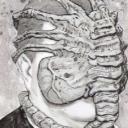Yahoo Answers is shutting down on May 4th, 2021 (Eastern Time) and beginning April 20th, 2021 (Eastern Time) the Yahoo Answers website will be in read-only mode. There will be no changes to other Yahoo properties or services, or your Yahoo account. You can find more information about the Yahoo Answers shutdown and how to download your data on this help page.
Trending News
Is there an equivalent to the word "legañas" in English?
I would love to have an English word (or even a Latin derivative, for that matter) that accurately works like the Spanish "legañas" to describe the crusty residue that forms on one's eyelids while sleeping. So far, I have heard: sleep, crusties, eye boogers, and the like, but it leaves me unsatisfied. "Legañas" just works so well.
2 Answers
- The CorinthianLv 71 decade agoFavorite Answer
Rheum is a medical term for the natural watery discharge from the eyes, commonly known as "sleep" or "eye boogers" (or some derivative thereof), which forms a crust on the eyelids during sleep (contrast to Mucopurulent discharge). It is formed by a combination of mucus (consisting of mucin discharged from the cornea or conjunctiva), tears, leaked blood cells, dead skin cells from the eyelids, and dust.
Normally, blinking causes this substance to be washed away with tears. The absence of this function during sleep, however, results in a small amount of dry rheum forming in the corners of the eyes even among healthy individuals, especially children. Still, the formation of a large amount of crust or the presence of pus within it may indicate dry eye or other more serious eye infections including conjunctivitis and corneitis.
Removal of the crust can be done easily by washing the eye with water or simply brushing them away with clean fingers. Young children or people under care may need to have this done by another individual. If left alone, the crust may cause the eyelids to stick together and make it difficult for the eyes to open.
- DebdebLv 71 decade ago
We always called the Mr. Sandman or just plain old Ca-ca. That's a hard K sound with a short A.




